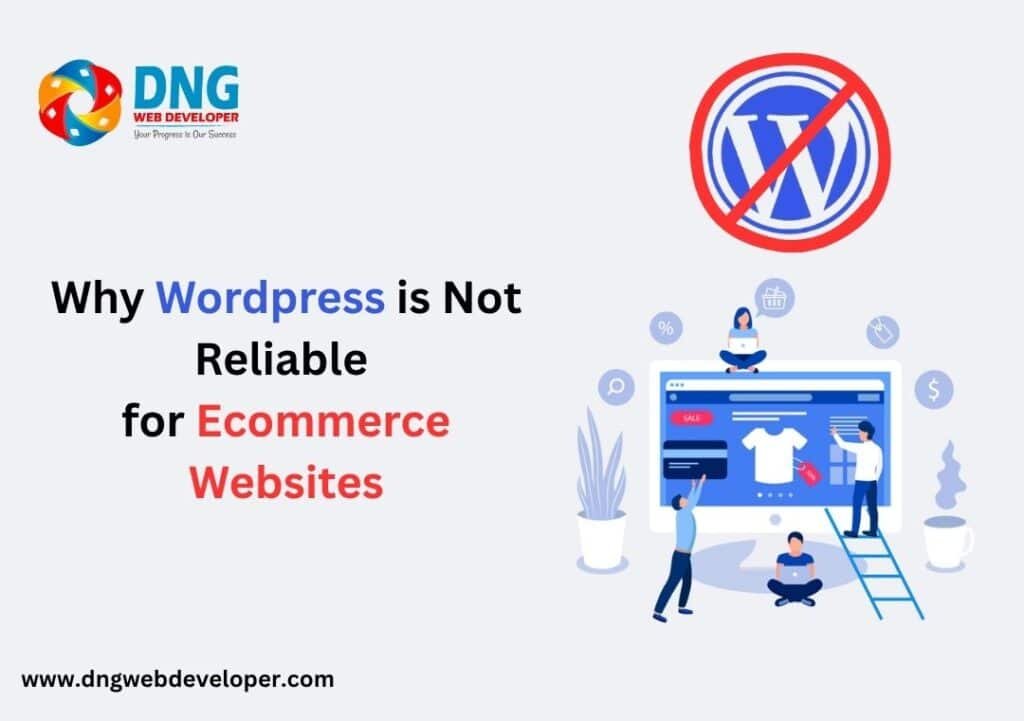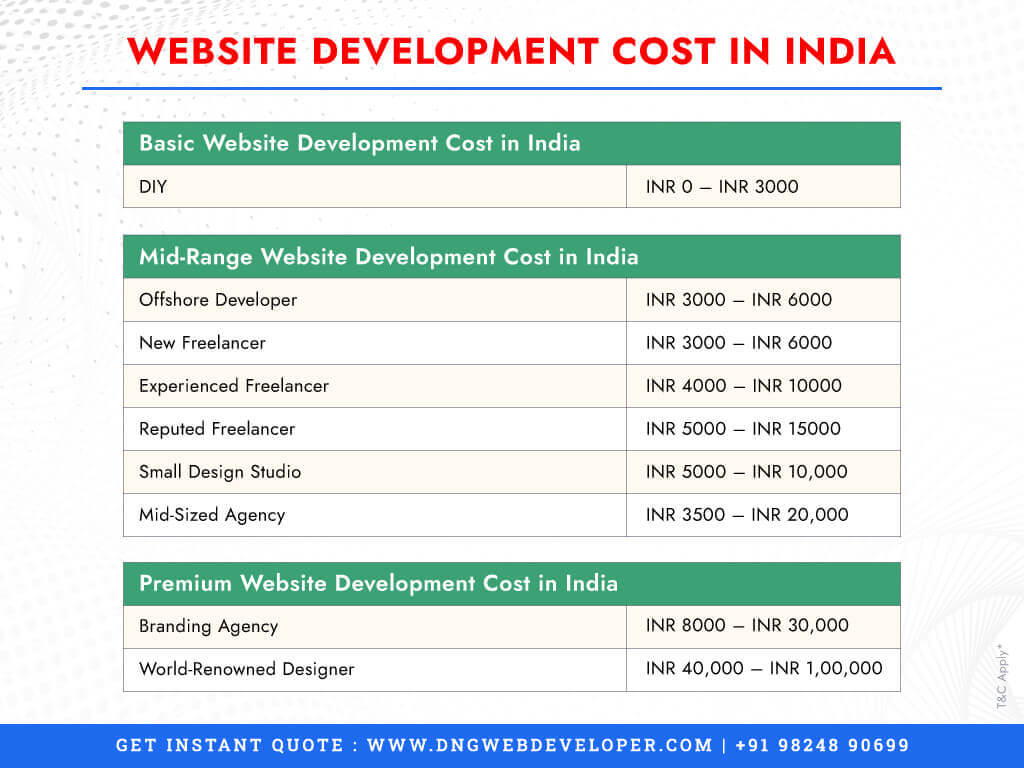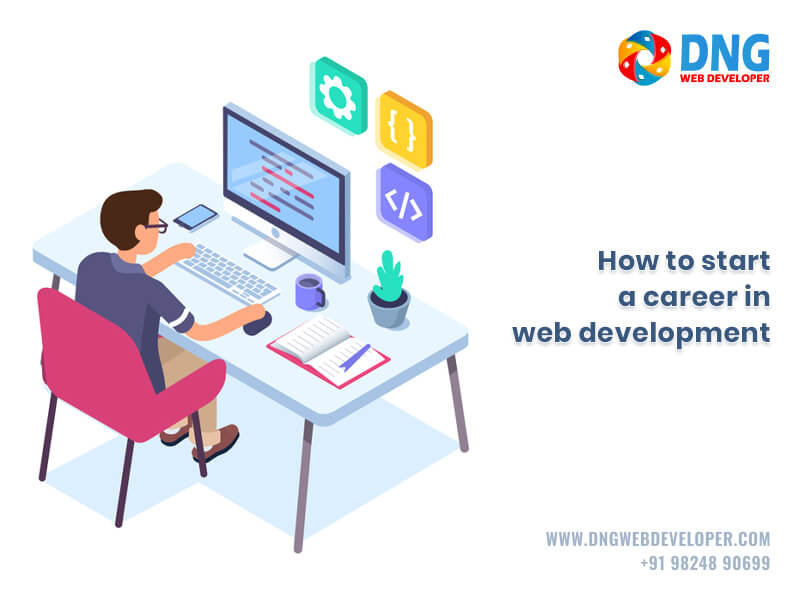WordPress is an effective tool. More than 40% of all websites on the internet are powered by it. However, WordPress—especially when combined with WooCommerce—becomes inadequate when it comes to managing a serious eCommerce business.
We explain in detail why WordPress isn’t the best option for an eCommerce website below.

WordPress Was Not Built for eCommerce
WooCommerce is not a core feature; it is an add-on.
WordPress was initially developed as a blogging platform rather than an online store. In basic terms, you’re imposing eCommerce functionality onto a system that wasn’t intended for it when you integrate WooCommerce.
As your store expands, this “bolt-on” strategy may cause structural and functional problems. What functions well for a small product catalog now, might not be able to handle complicated sales setups or heavy traffic tomorrow.
Too Many Headaches Are Caused by Too Many Plugins in WordPress
It’s a problem that every feature requires a plugin.
You’ll need several plugins to get even the most basic eCommerce functionality, including ones for payments, shipping, security, SEO, backups, analytics, and more.
A different developer creates each plugin. This implies:
- Plugins may not work with one another;
- Updates may conflict;
- And a routine update may cause your website to malfunction.
Your entire store may crash due to a single plugin update, particularly during periods of high traffic, such as product launches or sales.
Security Isn’t guaranteed
WordPress Is a vulnerable Target for Hackers
Due to their widespread use and plugin-based design, WordPress websites are often targeted. Data breaches, consumer data theft, and other online dangers can be supported by an out-of-date plugin or theme.
You may have to constantly keep an eye out by
- Installing and maintaining firewalls,
- Conducting malware scans,
- Creating daily backups,
- Updating themes and plugins on a regular basis,
- And configuring advanced settings
These are all part of maintaining your WordPress eCommerce store.
This is an important task to handle and a tough job if you’re not technically inclined.
Inadequate Scalability
WordPress will struggle As Your Store Expands
WordPress might work well for a small store with a few items. However, WordPress may begin to lag if you intend to scale—for example, by adding hundreds of products, high web traffic, or real-time inventory syncing.
You’ll require the following:
- Strong (and frequently costly) hosting;
- sophisticated caching and performance plugins
- Optimization of custom code
Eventually, the advantages are outweighed by the expense and difficulty of maintaining it.
Constant High Maintenance
You take on the role of tech support.
In comparison to hosted eCommerce platforms, WordPress lets you handle all of the maintenance. The Plugin and WordPress core updates, bug and error fixes following those updates. You’ll have to look out for downtime troubleshooting and compatibility testing.
A developer will probably need to be on call. If not, you’ll spend more time maintaining your store than expanding your clientele.
The checkout process isn’t smooth.
Checkout ought to be quick and easy, but it’s frequently not
Multiple additional plugins are required to enhance the user experience of WooCommerce’s default checkout process, which is simple.
To add features to your website like one-page checkout, express payments (UPI, PayPal, Apple Pay), mobile optimization, and cart abandonment recovery, your will require a bunch of plugins. That increases the complexity and potential points of failure at the checkout, which is the most crucial area of your store.
No Centralized Support
When something fails, it’ll be your responsibility to fix it.
The absence of direct support is one of WordPress’s main inconveniences.
You’ll have to juggle if something goes wrong. Nobody is entirely in charge of your website. This will cost you downtime, and downtime in eCommerce results in lost revenue.
A Pretty Front-End Themes May Be Deceptive Doesn’t Promise a Solid Back-End
Although many WordPress themes look fantastic, they may be bloated or not fully optimized for eCommerce.
The outcomes will be slower load times, a bad mobile experience, and problems with WooCommerce or other plugin compatibility.
If your store loads slowly on mobile devices or crashes during checkout, a beautiful homepage is useless.
Better Substitutes Exist for eCommerce-Specific Platforms
Use platforms designed specifically for online sales if you’re serious about it. Among these are Shopify, which is fully hosted, safe, scalable, and user-friendly for novices.
BigCommerce: Excellent for bigger shops that require more specialized features.
Magento (Adobe Commerce): Designed for large companies with specialized development teams.
or you can content one of the best ecommerce website developer from india and get customized ecommerce website for your business. Contect dng web developer and get estimate of ecommerce website now!
A good reliable platform will offer you better customer service, quicker checkout times, and integrated features that don’t require dozens of plugins
WordPress works well for personal websites, blogs, and basic business pages. However, it’s not the most credible or flexible choice for eCommerce.
You need a platform that is designed to handle your developing store. A good website that can carry out serious advertising campaigns, discounts. Your propaganda is managing large inventories, and supplying thousands of customers.
WordPress can help you get going. However, don’t assume that’s the best long-term option. Reliability is an essential factor in eCommerce; it is not an option.


